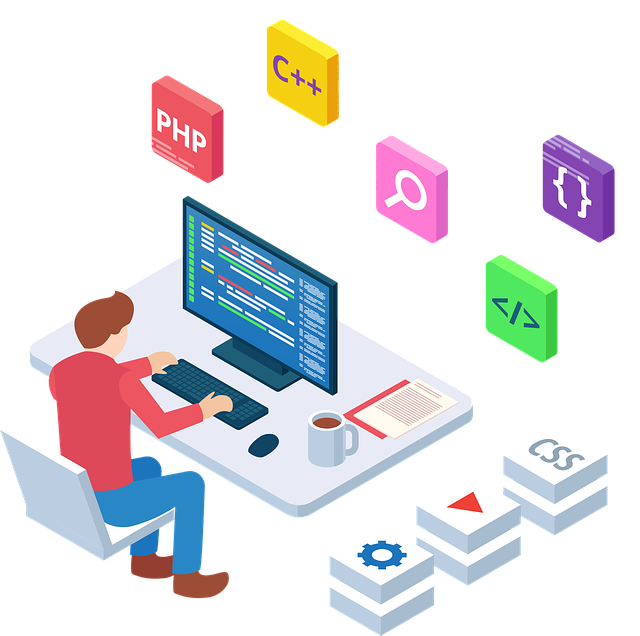

Firebase: Empowering the NoCode Revolution
Published on January 20, 2025
Written by Jaren Hidalgo· 15 minute read
Firebase has revolutionized the way we think about backend development, particularly in the NoCode and LowCode space. As Google’s premier app development platform, Firebase offers a comprehensive suite of tools that enables both professional developers and non-technical users to build sophisticated applications without diving deep into complex backend code. This article explores how Firebase is transforming the development landscape and why it’s become an essential tool in the NoCode/LowCode movement, especially with the rise of NoCode app builders.
Key Takeaways
NoCode tools, particularly Firebase, are essential in modern app development, enabling rapid application creation without extensive coding knowledge.
Firebase offers a versatile platform with key features like real-time databases, authentication, and cloud functions, streamlining the development process for both technical and non-technical users.
The adoption of NoCode solutions like Firebase allows businesses to develop applications more efficiently, cost-effectively, and inclusively, empowering a broader range of users to contribute to development efforts.
What is Firebase?

The landscape of NoCode tools is rapidly evolving, offering a plethora of options for individuals and businesses looking to create apps without extensive coding knowledge. All the apps included in these tools feature either free plans or flexible pricing models, making it accessible for various users from hobbyists to small businesses. Among these tools, Firebase has emerged as a cornerstone, providing powerful backend capabilities and streamlining the app development process.
Firebase is a comprehensive app development platform backed by Google that provides the essential building blocks needed to create mobile and web applications. Unlike traditional backend services that require extensive coding knowledge, Firebase adopts a visual, configuration-based approach that aligns perfectly with the NoCode/LowCode philosophy.
At its core, Firebase eliminates the need for managing servers and writing complex backend code, allowing creators to focus on building their application’s features and user experience. This approach has made it particularly attractive to startups, small businesses, and individuals looking to bring their ideas to life without significant technical overhead. Additionally, Firebase streamlines the process of deploying applications directly to app stores, enabling users to launch their creations quickly and efficiently.
Introduction
Firebase is revolutionizing the NoCode and LowCode movement through its comprehensive platform architecture, which is organized into four main pillars: Build, Release and Monitor, Analytics, and Engage. Each of these pillars serves a distinct purpose in the application development lifecycle, providing specialized tools and services that address different aspects of modern app creation.
A cornerstone of Firebase's success is its universal cross-platform compatibility. The platform seamlessly supports iOS, Android, and web applications, enabling developers to create applications that work consistently across different devices multiple platforms, and operating systems without maintaining separate codebases. This approach allows developers to focus on delivering exceptional user experiences rather than wrestling with backend complexities.
The platform's foundation rests on three core services that power modern applications:
Authentication: A sophisticated system that securely manages user sign-ins through multiple methods, including email/password combinations, social media integrations, and phone number verification. This ensures robust security while maintaining user-friendly access.
Real-Time Database and Cloud Firestore: Advanced data synchronization services that provide immediate updates across all connected devices. This capability is particularly valuable for interactive applications such as chat systems, multiplayer games, and social platforms where real-time communication is essential.
Cloud Functions: Serverless computing capabilities that execute backend code in response to specific triggers or HTTPS requests. This eliminates the need for traditional server management while maintaining powerful backend functionality.
Beyond these core services, Firebase provides a comprehensive ecosystem of development and maintenance tools. This includes sophisticated crash reporting, detailed analytics, and reliable hosting services. All these features are designed to work together seamlessly, creating a cohesive development environment that scales with your application's needs.
The platform's intuitive design makes it accessible to both seasoned developers and newcomers to app development. By combining ease of use with powerful functionality, Firebase enables developers to build, test, and deploy applications efficiently while focusing on creating value for their users rather than managing infrastructure. This comprehensive approach has made Firebase a leading choice for modern application development, whether you're building a simple prototype or a complex, feature-rich application.
Benefits of working with Firebase

NoCode platforms offer numerous benefits that make them an attractive option for businesses and developers alike. They enable rapid development of applications, reduce costs, and make app development accessible for newcomers. These advantages are particularly significant in today’s fast-paced digital world, where the ability to quickly create and iterate on applications is crucial for success.
Speed and Efficiency
One of the primary benefits of NoCode tools is the speed at which applications can be developed and deployed. New users or app projects are automatically created in response to new records or project initiations, streamlining the process significantly. These platforms eliminate the need for extensive coding knowledge, allowing users to build and manage applications quickly and efficiently. With Firebase, teams can set up backend services rapidly, enabling them to focus on front-end features and delivering a seamless user experience. The real-time database capabilities of Firebase further enhance internal workflows by providing instant access to and updates on information.
Cost-Effectiveness
Cost-effectiveness is another major advantage of NoCode platforms. Firebase’s free tier is particularly beneficial for startups and small businesses, allowing them to both build apps and launch MVPs without incurring initial costs. This helps organizations save on development expenses, enabling them to allocate resources more effectively and focus on other critical areas such as marketing and customer acquisition.
Additionally, Firebase provides tools that allow organizations to automate processes and manage data effectively without the need for a dedicated development team. Using Firebase for internal tools allows businesses to streamline processes, saving time and reducing the effort needed for routine tasks. This not only saves costs but also improves overall productivity and operational efficiency.
Accessibility for Non-Technical Users
While NoCode platforms are designed to be accessible to non-technical users, the reality is that developing a sophisticated application can still present challenges. This is where the expertise of a NoCode/LowCode agency becomes invaluable. An agency not only helps in bringing your app idea to life using platforms like Firebase but also ensures that the development process is smooth and efficient. By partnering with an agency, you gain access to experienced professionals who can navigate the complexities of app development, ensuring your vision is realized without the hurdles of extensive coding.
Moreover, a reputable agency doesn't just deliver a finished product; it empowers you by teaching you how to manage and utilize the project they developed. This educational component is crucial for providing you with the autonomy needed to handle your app independently once it's handed over. That why here at Kreante we offer our guidance on using Firebase's features, such as user authentication and scalable database management, so you can confidently maintain and grow your application. This collaborative approach not only ensures the successful development of your app but also equips you with the skills and knowledge to continue its evolution, making the transition seamless and empowering you to take full control of your project's future.
Why Firebase stands out as popular NoCode App Builders in 2025

In the realm of NoCode app builders, several platforms have gained prominence for their ability to simplify app development and empower users to create apps without writing extensive code. Among these, Firebase stands out as a comprehensive and versatile solution backed by Google. Firebase streamlines app creation by combining various functionalities such as databases, authentication, and cloud services into a single platform, making it an ideal choice for both mobile and web applications.
Firebase supports cross-platform development, allowing developers to build applications that run seamlessly on both mobile and desktop devices. Its toolset includes services such as analytics, authentication, databases, configuration, file storage, and push messaging, providing everything needed to build, improve, and grow modern applications. Additionally, Firebase Crashlytics helps track, prioritize, and fix stability issues in apps, sending real-time alerts for bugs or crashes, thereby enhancing the overall user experience.
Many well-known companies, including Duolingo, Accenture, Trivago, Alibaba, Instacart, and Lyft, use Firebase to power their applications. The platform’s intuitive interface, comprehensive feature set, and scalability make it an ideal choice for anyone looking to build web apps and mobile apps without the burden of writing complex code.
Firebase’s strong community support and extensive integration options further enhance its position as a leading NoCode app builder in 2025.
Key Features of Firebase for NoCode Development
Firebase offers a range of features that make it a powerful tool for NoCode development. These features eliminate the need for managing servers and writing complex backend code, allowing developers to focus on building their application’s front-end and user experience.
Key features of Firebase include its real-time database, authentication, cloud functions, and hosting services.
Real-Time Database and Firestore
One of the standout features of Firebase is its realtime database, a cloud-hosted NoSQL database that stores data as JSON and syncs it across all connected clients in real time. This capability is crucial for applications that require instant data updates, such as collaborative tools and real-time messaging apps. The realtime database enables developers to create interactive user experiences without dealing with backend code.
In addition to the real-time database, Firebase offers Cloud Firestore, which provides a more structured approach to data organization. Firestore supports complex and hierarchy-based data at scale, running queries faster and offering better performance and reliability than the real-time database. Firestore’s features make it a top choice for applications needing efficient data management and real-time synchronization.
Firebase Authentication
Firebase Authentication simplifies the process of securing user logins, which can be challenging to implement from scratch. The platform supports multiple authentication methods, including phone number, email, Google, and Facebook accounts, providing a versatile range of options for user authentication. This versatility enables developers to provide a smooth login user registration experience, boosting user satisfaction and engagement.
Firebase’s user authentication also simplifies user management, allowing developers to focus on core product functionalities. The drop-in solution provided by Firebase supports email and password authentication, social media login integration, phone number authentication, and even anonymous authentication. These features make it easy to implement secure and reliable user authentication in any application.
Cloud Functions
Firebase Cloud Functions provide a serverless, event-driven backend service that allows developers to write and deploy code that automatically responds to events from other Firebase products. This serverless architecture eliminates the need for server management, enabling developers to focus on writing the code that powers their applications. Cloud Functions can be triggered by various Firebase features, such as database changes, authentication events, and HTTPS requests.
The ability to add custom backend logic through Cloud Functions makes Firebase a powerful tool for extending application capabilities. With visual triggers for function execution, pre-built templates for common scenarios, integrated monitoring and logging, and automatic scaling and management, developers can easily implement complex backend processes without the traditional overhead.
Cloud Functions’ flexibility and user-friendliness make it a critical feature for any NoCode app builder.
Hosting and Storage
Firebase Hosting provides a fast, secure, and scalable solution for hosting web applications. With global CDN delivery, automatic SSL certificate provisioning, custom domain support, and one-click deployments, Firebase Hosting streamlines the deployment process, allowing developers to focus on building their applications rather than managing servers. This makes it an ideal choice for both mobile and desktop applications, ensuring a seamless user experience.
Firebase Storage offers scalable storage solutions, capable of handling up to exabyte capacities with nearly 2 billion files stored monthly. This service integrates with Firebase Authentication and Cloud Functions to provide customizable access control and enhance security measures. The combination of easy-to-use hosting and robust storage services makes Firebase a comprehensive solution for all backend needs.
Integrating Firebase with Other NoCode Tools

Integrating Firebase with other NoCode tools enhances the development process by enabling seamless management of user authentication, real-time databases, serverless functions, file storage, hosting, and app analytics. This integration allows developers to leverage the full capabilities of Firebase while utilizing other platforms’ unique features, creating a more robust and efficient development environment.
Platforms like AppMaster enable real-time data management by integrating with Firebase’s database capabilities, while ApiX-Drive facilitates workflow automation without the need for coding.
Utilizing these integrations accelerates development, reduces errors, and enhances the overall user experience by providing valuable backend services.
Using ApiX-Drive for Automation
ApiX-Drive enhances Firebase NoCode by providing integration capabilities that streamline API connections. With ApiX-Drive, users can easily connect Firebase with other services to automate workflows and enhance application functionality. This integration ensures smooth data flow between Firebase and external services, enhancing operational efficiency and minimizing manual intervention.
Managing files in Firebase Cloud Storage becomes effortless with ApiX-Drive, enabling users to perform actions like uploading and deleting files without writing code. This automation capability makes it easier to manage app data and maintain a smooth and efficient development process.
Use Cases for Firebase in NoCode Development
Firebase’s versatility and powerful features make it suitable for various use cases in NoCode development. Whether building MVPs, developing internal tools, or enhancing existing apps, Firebase provides the necessary tools to create robust and scalable applications without extensive coding knowledge.
Building MVPs
Building minimum viable products (MVPs) is one of the most common use cases for Firebase. The platform enables fast prototyping, allowing developers to create MVPs swiftly and efficiently. Firebase’s backend services enable teams to focus on key features and user experience, ensuring their MVPs meet user needs and market demands.
Firebase Analytics provides valuable insights into user behavior, helping developers track user conversions and identify key events that drive desired actions. This information is crucial for refining MVPs and ensuring their success in the market.
Developing Internal Tools
Organizations can use Firebase to develop internal tools that streamline business processes without requiring a dedicated development team. By leveraging Firebase’s capabilities, businesses can create tailored applications for data management, automate workflows, and enhance process efficiency. This strategy modernizes internal operations, reducing the time and effort required for routine tasks.
The overall impact of Firebase on internal tool development is significant, enabling faster and more efficient operations across various departments. With Firebase, organizations can build internal tools that address specific business needs, improving productivity and operational efficiency.
Enhancing Existing Apps
Integrating Firebase into existing NoCode apps can significantly enhance their functionality and performance. Users can install and evaluate mobile applications they create using NoCode app builders to test apps before full deployment. The real-time database synchronizes data across connected clients, ensuring users have up-to-date information at all times. This capability is particularly beneficial for applications that require real-time data updates, such as collaborative tools and messaging apps.
Firebase Analytics provides insights into user behavior and application performance, allowing developers to make informed decisions and optimize their apps for better user experience. By leveraging Firebase’s powerful features, developers can enhance existing apps, making them more robust and scalable.

Security and Scalability with Firebase
Security and scalability are critical considerations in app development, and Firebase excels in both areas. The platform offers advanced security features and enterprise-grade scalability, making it suitable for both small projects and large-scale applications.
Next, we discuss implementing security rules and scaling your app with Firebase.
Implementing Security Rules
Using Firebase Security Rules, developers can ensure fine-grained access control to protect app data. These rules define how data is accessed and by whom, maintaining data security for NoCode applications. Firebase Real-Time Database and Firestore utilize these security rules to validate file types and sizes before allowing uploads, ensuring only acceptable content is stored.
Proper authentication rules, database security rules, and conducting regular security audits are essential considerations for NoCode projects using Firebase. By implementing these measures, developers can enhance data integrity, reduce vulnerabilities, and provide customizable authentication flows.
Scaling Your App
Firebase’s global infrastructure ensures reliable scalability and low latency, making it suitable for both small projects and enterprise-level applications. The platform’s pricing model is attractive for NoCode/LowCode projects, offering a generous free tier for testing and small applications, and a pay-as-you-go pricing model for growing projects. This flexibility allows developers to scale their apps based on usage, without incurring upfront costs or commitments.
With Firebase, developers can build applications that scale seamlessly to meet user demands. The platform’s ability to handle large volumes of data and users makes it a robust choice for any app development project, ensuring that apps remain performant and reliable as they grow.

Firebase Analytics for NoCode Apps
Firebase Analytics is a powerful tool that helps developers understand user behavior and app performance by collecting data on user interactions. This information provides valuable insights into user engagement, demographics, and performance, enabling developers to make informed decisions and optimize their apps for better user experience. The event tracking, user attribute tracking, audience segmentation, conversion tracking, retention analysis, performance monitoring, custom dashboards, and real-time reporting features of Firebase Analytics make it an essential tool for any NoCode app builder.
By leveraging Firebase Analytics, developers can enhance app growth, user engagement, and overall success. Firebase’s AI-assistive tools enhance app quality and user experience through ongoing monitoring and iteration. This comprehensive analytics solution ensures that developers have the insights they need to create high-quality, user-friendly applications.
Setting Up Firebase Analytics
Setting up Firebase Analytics is a straightforward process that begins with enabling the service in the Firebase Console. Once activated, developers can integrate Firebase Analytics with their app and configure it to track various user interactions. This setup provides a wealth of data that can be used to understand user behavior and make informed decisions about app improvements.
By setting up Firebase Analytics, developers gain access to a powerful tool that enhances their ability to optimize app performance and user experience. The insights from this data are crucial for refining app features, enhancing user engagement, and ensuring the application’s success.
Building Web Apps with Firebase NoCode
Building web apps with Firebase NoCode is a game-changer in the app development industry. With the rise of NoCode tools, creating web apps has become more accessible and efficient. Firebase NoCode is a powerful platform that enables users to build and deploy web apps without writing extensive backend code.
Firebase simplifies the app development process by providing a suite of integrated tools that handle everything from user authentication to real-time data synchronization. This means that even those without a technical background can create robust, scalable web apps. The platform’s visual interface allows users to configure backend services through simple, intuitive steps, eliminating the need for complex coding.
One of the standout features of Firebase for web app development is its real-time database. This feature ensures that data is instantly updated across all connected clients, making it ideal for applications that require real-time interactions, such as collaborative tools and live chat applications. Additionally, Firebase Authentication offers a secure and straightforward way to manage user sign-ins, supporting various methods like email/password, social media logins, and phone number verification.
Moreover, Firebase’s hosting service is another critical component for web apps. It provides fast, secure, and reliable hosting with global CDN delivery, ensuring that your web app performs well regardless of where your users are located. The platform also supports one-click deployments, making it easy to launch updates and new features without downtime.
In summary, Firebase NoCode empowers users to build web apps quickly and efficiently, without the need for extensive backend code. Its comprehensive suite of tools and seamless integration with other NoCode platforms make it an ideal choice for anyone looking to create powerful, scalable web applications.
Future Trends in NoCode Development with Firebase

The future of NoCode development with Firebase looks incredibly promising, with several trends set to shape the landscape in the coming years. One of the most exciting trends is the integration of AI and machine learning, which will empower Firebase to predict user behavior and optimize application functionality. These advancements will enable developers to create more intelligent and responsive applications, enhancing the overall user experience.
Increased automation capabilities are another trend that will streamline the development process, allowing users to create applications more efficiently. Enhanced visual development tools will simplify the app-building process, making it accessible to a wider range of users, including those without technical backgrounds. These trends will further democratize app development, enabling more people to bring their ideas to life.
As Firebase continues to evolve, it will offer expanded integration options and advanced AI and ML features. These advancements will make the platform even more versatile and powerful, ensuring that it remains at the forefront of NoCode development. The future of Firebase is bright, and developers can look forward to even more innovative tools and features that will help them create exceptional applications.
Summary
In conclusion, Firebase is a powerful platform that empowers the NoCode and LowCode revolution, providing a comprehensive set of tools and services for app development. Its real-time database, authentication, cloud functions, hosting, and analytics features make it an ideal choice for developers and non-developers alike. By leveraging Firebase, businesses can rapidly develop applications, reduce costs, and make app development accessible to non-technical users.
Whether you’re building MVPs, developing internal tools, or enhancing existing apps, Firebase offers the necessary capabilities to create robust and scalable applications. The platform’s advanced security features, enterprise-grade scalability, and future trends in AI and automation ensure that it will continue to be a leader in the NoCode development space. Ready to revolutionize your app development journey? Reach out to us and schedule a free call with one of our knowledgeable Kreante members who can guide you through the endless possibilities of NoCode and LowCode solutions. Don't forget to check out our blog regularly to stay updated with all the latest news and trends in the NoCode and LowCode universe. We're here to help you create apps that make an impact!

Frequently Asked Questions
What is Firebase?
Firebase is a comprehensive mobile application development platform by Google, designed to facilitate the creation, enhancement, and scaling of mobile and web applications, making it accessible even to those with limited coding skills.
What are some key features of Firebase?
Firebase's key features include real-time database capabilities, authentication, cloud functions, hosting services, and analytics, providing a robust platform for app development.
What are the benefits of using Firebase for building MVPs?
Using Firebase for building MVPs allows for rapid prototyping and efficient development, enabling teams to concentrate on core features and enhance user experience. This streamlined process accelerates time to market significantly.
How does Firebase ensure data security?
Firebase ensures data security by implementing security rules that manage data access and integrity, alongside customizable authentication flows to protect against vulnerabilities.
Can I build applications with Firebase as a non-technical user?
Yes, Firebase is specifically designed to support non-technical users by providing a complete backend solution with a visual interface. Its seamless integration with NoCode tools and minimal coding requirements makes it possible for founders and citizen developers to build and manage full-featured applications without writing code.
How does Firebase pricing work for small projects?
Firebase offers a generous free plan that includes essential features, making it cost-effective for small projects and startups.
Is Firebase suitable for enterprise-level applications?
Yes, Firebase scales well and offers enterprise-grade features, making it suitable for large-scale applications.
How does Firebase compare to other backend solutions?
Firebase stands out for its ease of use, comprehensive features, and strong integration capabilities, particularly in the NoCode/LowCode space.
What types of applications can I build with Firebase?
Firebase supports a wide range of applications, from simple websites to complex mobile apps and enterprise solutions.



Laboratoria+ : The top 5 Benefits of Lowcode Platforms in 2025 | Kreante Case Study






.png)
